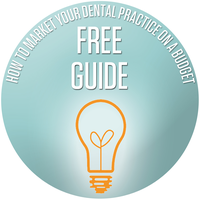
Seniors are at risk and underserved in the oral health arena, according to a recent article in the Journal of American Dental Association. Working with and providing information for caregivers can help you boost your patients' health.
A study by researchers at Tufts University concluded that disabled adults and seniors suffer from an increased number of dental problems due to lack of care and education. Despite the Affordable Care Act and the increased availability of benefits for this at-risk group, many seniors are not taking advantage of programs and skipping out on dental care entirely. How can you help get them into the dental office? It's all about the caregivers—you can remind them about elderly dental check-ups.
For seniors with memory issues, remembering to brush daily may be a problem—or remembering the last time they went to the dentist. Part of a caregiver’s job is to keep up with medical and dental appointments; including the caregiver in your marketing and scheduling efforts is essential.
Education is also a must. While most caregivers will recognize the importance of regular dental care, they won't be able to spot the signs of a problem without some help. Make sure you have handouts or materials available for caregivers, educating them on what signs to look for in an elderly dental patient. An informational page for caregivers on your website is a great start and allows you to update information as needed.
Don't be shy about presenting adaptive materials. If you spot the signs of poor oral hygiene in an elderly patient, suggest some alternative methods of brushing or adaptive tools for oral care. If a caregiver is already helping with self-care, he/she may not be skilled at brushing and flossing someone else's teeth. A quick lesson or suggestion can drastically improve your patient's health and outcome.
Market to the right group: If you are interested in improving the health of the elderly patients in your community, market to the right group. Adults caring for an aging parent should be a target demographic when you plan and implement your marketing strategy. For example, you can remind them that oral health is linked to overall health—and that gum disease increases risks for serious conditions such as heart disease, stroke and even Alzheimer’s. Good oral hygiene is imperative for the well-being of their loved ones.
Caregivers are the key to reaching your elderly patients. Give them the tools they need help make sure those in their care have the best oral health possible.



